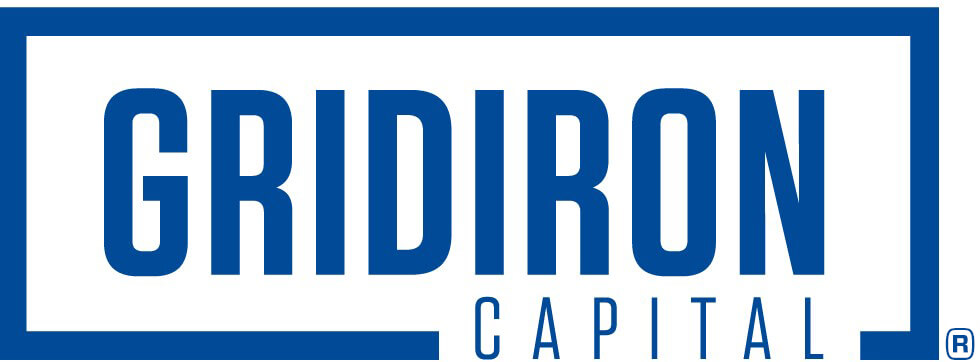Gridiron Capital featured in the Nashville Business Journal
Choosing the Right Investment Firm: A How-To for Founders and Business Leaders
By Andrea Williams
August 10, 2018
Reports of companies landing eight- to nine-figure capital investments are enough to have any cash-strapped or growth-driven founder clamoring for a piece of the equity pie. And while some entrepreneurs may, indeed, develop an asset that is attractive to investors, it’s important that they conduct extensive due diligence in order to find the best fit and potential for continued growth.
Jane Allen, founder of Brentwood, Tennessee-based Counsel on Call, a digital platform connecting law firms with contract attorneys, had run her company for more than 15 years before seeking outside help. She struck a deal with Gridiron Capital, and while she says that “the money was nice,” she was more impressed by the firm’s willingness to collaborate and truly partner with her in guiding Counsel on Call to future success.
“When we went through the vetting process, I would say, ‘I don’t think I am the [Counsel on Call] CEO for the future,’ and that didn’t scare [Gridiron] at all,” says Allen. “We really felt we were at the cusp, and we felt there was a huge window [of opportunity] there, and we needed a partner to come with us to do it. And in doing so, I felt we needed an experienced CEO—not necessarily an entrepreneur, but a visionary who’s constantly trying to create new solutions to solve problems.”
It was Allen’s willingness to speak up and ask questions about her future vision for Counsel on Call that helped her determine that Gridiron was the right partner for her company, even as her own role was evolving.
“Because we have been business owners, operators, and executives ourselves, we understand what it’s like,” says Tom Burger, Gridiron’s Managing Partner and Co-Founder. “So we know what we don’t know. From our standpoint, we’re never going to know [Counsel on Call] as well as Jane does. She founded it, and she’s worked in it every day for many, many years. But what we bring to the table is the fact that we’ve invested in part of over 100 companies. We bring ideas, creativity, and resources, and we know where our strengths and weaknesses are.”
Allen quickly discovered that one of Gridiron’s key strengths was in attracting top talent for growing ventures. She remembers having a conversation with a potential employee and being very aware of the fact that, at the time, Counsel on Call wasn’t in a strong enough position to recruit her. However, that completely changed once she partnered with Gridiron.
“That was one of the first calls I made to Will [Hausberg, Gridiron Managing Director],” Allen says. “I said, ‘This is what I think she can bring to the company,’ and he made it happen. For me, as the person running the company, it was fabulous to have partners who would listen, push back, and question, but then make the right decision and make it happen.”
Allen also notes that having Gridiron as an ally once allowed her company to overcome some challenges with its payroll company in a more efficient manner than would have been previously possible. Because Gridiron used the same company to handle payroll for all of their other portfolio companies, they were able to leverage that power to get a quick resolution.
While Gridiron was able to assuage Allen’s specific concerns regarding the growth and expansion of Counsel on Call, it’s important to note that every company is different. For this reason, it’s important for founders and business leaders to vet every potential investor with the same intensity that they are being vetted.
“We do a fair amount of processes for companies where they’re looking to bring in an investment partner, and I think sometimes our clients get enamored with purchase price and value at a particular firm,” says Gregg Eisenberg, Managing Partner and Executive Committee Member of Benesch Law. “We always talk to our clients who are considering bringing in an investor about the relationship [they have with that investor]. Who do you want to spend your time with for the next five, six, seven years? Who is a great partner for you, and who would support you? My advice for the sales process, or the recap process, is to find great people that you want to work with.”
Burger agrees, noting that few founders have strong enough relationships with multiple investors in order to assess the market before entering into their own agreement. And even when a company is beginning to attract interest from potential investors, the fact that those firms will often go out of their way to present themselves as flawless entities makes it more difficult to decide whether to proceed with a deal.
“They all seem like great people,” Burger says. “So how do you figure out what they’re really like to work with? What will they really be like in tough situations? How much are you going to enjoy working with them? That’s hard to do because you’ve been building and running your business, and these are all new people to you.”
Burger’s solution? Call the founders of a firm’s other portfolio companies. Ask hard questions about how partners reacted when a company didn’t reach revenue goals as quickly as hoped, or when a market proves to be less promising than originally anticipated. And, most importantly, avoid rushing into any decision.
“Make sure you spend the time to really figure out: ‘Are these people that we want to spend a lot of time with over the next five to eight years, and are we going to not only be successful, but are we going to enjoy doing it?’” he says. “Life is short, so pick partners you’re going to enjoy.”
